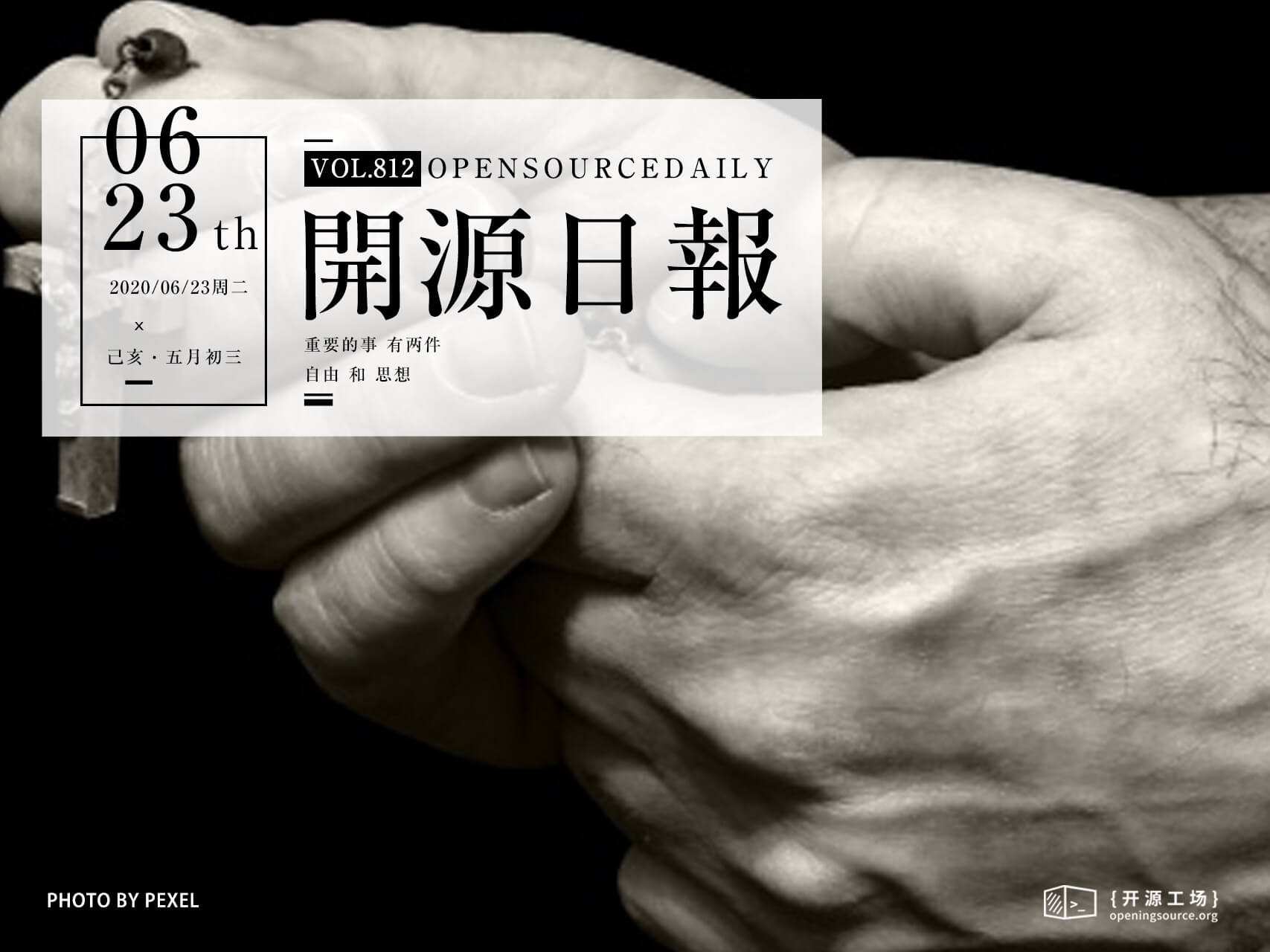今日推薦開源項目:《去馬賽克 Face-Depixelizer》
今日推薦英文原文:《When AI Takes Our Jobs: Three Scenarios》

今日推薦開源項目:《去馬賽克 Face-Depixelizer》傳送門:GitHub鏈接
推薦理由:該軟體與我們平常使用的恰好相反,它用來去掉人臉的馬賽克,將馬賽克圖片細節化。當然,它也不是那麼完美,不過只要是一個正常人臉的馬賽克,還原以後應該是能夠接受的。
今日推薦英文原文:《When AI Takes Our Jobs: Three Scenarios》作者:Gunnar De Winter
原文鏈接:https://medium.com/predict/when-ai-takes-our-jobs-three-scenarios-21636021af04
推薦理由:不可否認,人工智慧正在取代越來越多的工作崗位。未來會是什麼樣子?本文給出了三種可能。
When AI Takes Our Jobs: Three Scenarios
Utopia, dystopia, or something in between?
Unlike the Luddites
In the 19th century, a group of textile workers, know as the Luddites, protested against machines taking over their jobs. Their form of protest often involved destroying the machines that replaced them. Since the, the term 『Luddite』 has become synonymous with a person that opposes new forms of technology out of fear for job loss, rising inequality, etc.However, the Luddite fear seemed out of proportion. Jobs were lost, yes, but many others were created. As machines and robots became able to do menial, manual (『physical』) jobs, we humans could always find some comfort in knowing that there would always be 『cognitive』 jobs for us, such as teaching, communicating, interpreting data,…
Then came machine learning/AI. Suddenly, even the cognitive jobs are no longer safe from artificial applicants.
Whereto now? Shall we embrace neo-Luddism and strongly curtail the abilities of AI, or do we fully embrace the possible revolution in our jobs, our societies, and our lives?
Right now, it』s still up to us to figure out which way we want the pendulum of possibility to swing.
Scenario 1: Utopia
Let』s start with rose-tinted glasses.Yes, AI/machine learning is advancing fast and soon it will be able to do (almost) anything we can do. Science? Check. Art? Check.
(Although not everyone agrees that the 『advances』 in AI are what they seem. Be careful of hype. But for our scenarios here, let』s give it the benefit of the doubt.)
More than that, AI will probably be able to do our jobs better, faster, and with less mistakes. And once we have AI that builds AI, there』s no way we』ll be able to catch up. We can』t compete with the 『super』 in superintelligence.
But that may be a great thing.
Once AI can guide production and transport robots (for example, a network of self-driving cars, trucks, trains, planes, boats…), commodities can be produced and allocated to ensure that no one is left wanting of, well, almost anything. Post-scarcity arrives.
We won』t longer have jobs, but we』ll no longer need them. Heck, most of us might no longer want them. No more nine-to-five, but actual freedom to do with your precious time what you choose. If you want to work, if you need a job for purpose, then sure, the algorithms will fit you in somewhere. But for the rest of us, sweet — frightening — freedom awaits.
Scenario 2: Dystopia
Time for a new set of glasses. Dark ones, this time.Again let』s start with the assumption that AI/machine learning advances to the point that it takes over much, if not all, human jobs. But this time, it is not accompanied by major political, economic, and societal reforms.
In other words, the benefits are not well-distributed (just look at the world right now). A small elite will do well, but the people who will lose their jobs are also the ones who will have the least access to the potential benefits of better technology and its corollaries, such as healthcare, education, etc. If this sounds eerily like our current predicament, just imagine the inequality even starker.
And once you』re at the (growing) bottom of the pile, it will be increasingly hard to improve your situation. Retraining yourself without access to education is hard, and funneling resources your way will become ever more difficult as your access to the latest technologies will decrease with every passing second.
To improve you situation, you want to — have to — work, but there are no jobs. All you can really do is hunt for scraps in order to survive.
Yikes.
Scenario 3: Between the extremes
The two scenarios above are, of course, the extreme of a wide spectrum of possibilities. If we allow the assumption that AI will indeed reduce the need for human employees in a large variety of jobs, we』ll likely end up somewhere in between utopia and dystopia.Right now, it』s still up to us to figure out which way we want the pendulum of possibility to swing.
As (if?) AI/machine learning continues to advance, more and more (parts of) current jobs will no longer have a need for human employees. To be sure, AI also creates jobs. Programmers, developers, AI ethicists… are all in much higher demand than they have ever been.
But not everyone is a programmer.
The new jobs are not like the old jobs. On both the societal and personal level, the transition may be painful. Retraining will become more important than ever. And, in time, less and less jobs will be available overall.
This means, that even now, we might have to begin thinking about new economic, political, and social models. (We can』t really wait because, let』s be honest, politics and policy are not exactly the most adaptable or fast-moving segments of society.)
Free universal healthcare, guaranteed access to training and education, and a universal basic income all seem pipe dreams in our current world, but they may well be essential components of a non-dystopian future.
We should think about which economic/political/social models could support these societal components. It will be painful to shake off historical inertia and overcome the human tendency for 『short-termism』 and personal profit-seeking. But we might have to.
We can still nudge the pendulum. Let』s not waste the opportunity…
下載開源日報APP:https://openingsource.org/2579/
加入我們:https://openingsource.org/about/join/
關注我們:https://openingsource.org/about/love/
